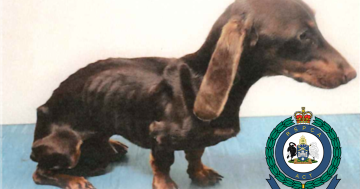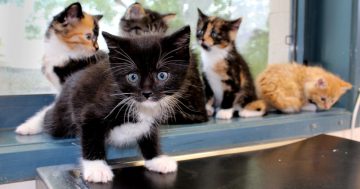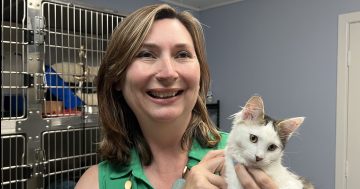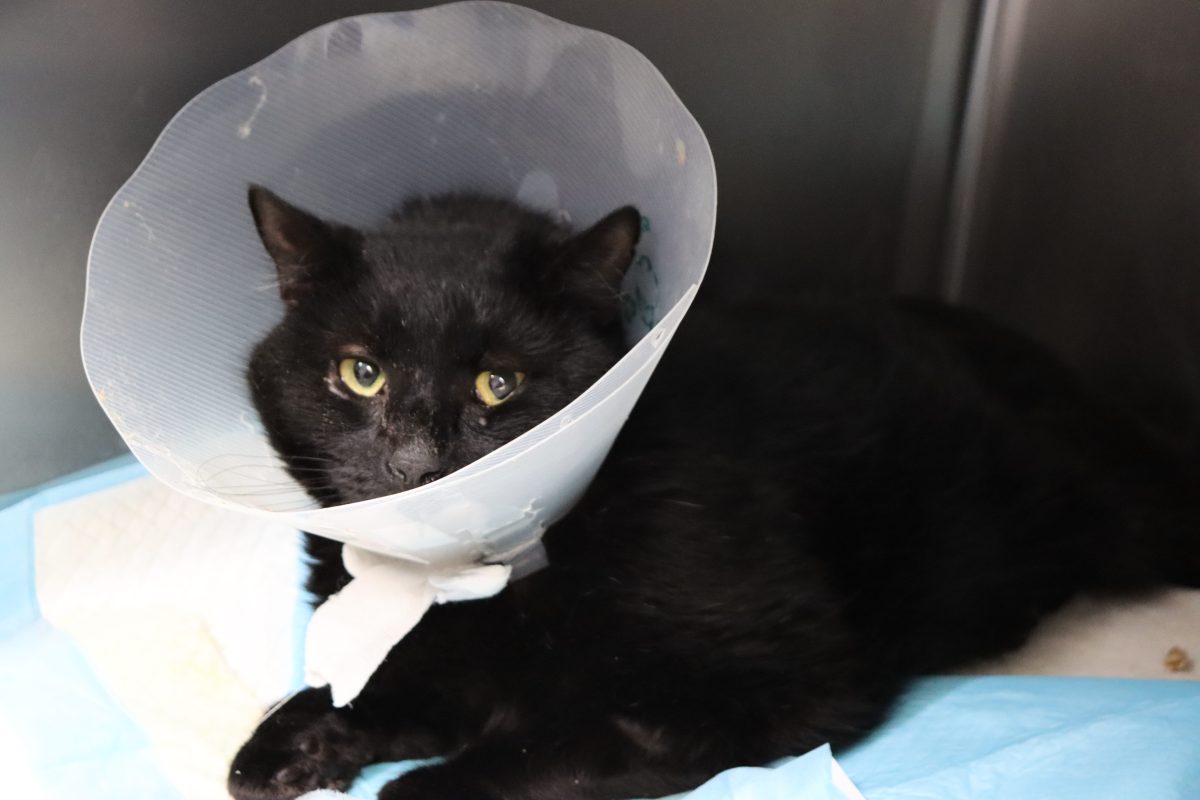
‘Barry’ the cat has been recovering well after being found with rubber bands around his testicles. Photo: RSPCA ACT.
RSPCA ACT is investigating reports that two male cats were recently found with rubber bands tied around their testicles in the northern Belconnen region.
One of the cases was confirmed as the animal made its way to the branch’s shelter, while the branch also heard reports that the second was taken to a vet clinic.
In August 2024, the first case was discovered when eight cats came into the branch’s care.
“It is quite troubling because this poor little male cat had his testicles very tightly bound at the base with rubber bands,” RSPCA ACT CEO Michelle Robertson said.
“That cat must have been in absolutely excruciating pain for an extended period of time.”
Surgery was performed to remove the tissue and treat the cat, given the name ‘Barry’, and he has “recovered remarkably well”, she explained.
“He was pretty happy afterwards, which is a really good outcome,” she said.
“Poor Barry was really suffering, but we were able to take action.
“If it was days longer, I expect the outcome would not have been as happy.”
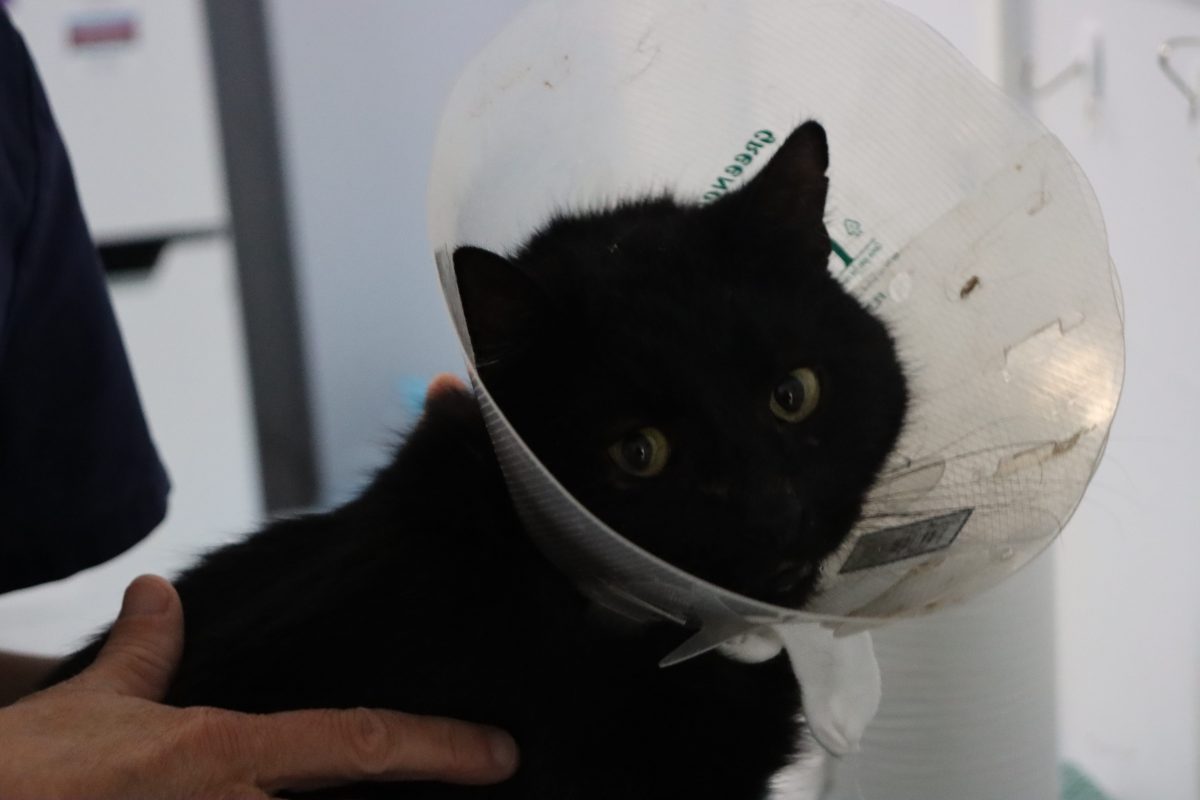
‘Barry’ the cat underwent surgery after he was found in the Charnwood region. Photo: RSPCA ACT.
Ms Robertson said the second cat was taken to a local vet in September 2024, and while RSPCA members hadn’t seen this animal, her branch was told it also had rubber bands on its testicles.
“That is of great concern to us because it’s two very separate cases but the same issue,” she said.
She was unsure about the second cat’s condition as he wasn’t in the RSPCA’s care.
Both cats were apparently found in the Charnwood region.
Ms Robertson said there could have been a variety of reasons why this was done to the cats.
She said it could have been people trying to hurt the animals, which was “inexcusable”, but could also have been people who were “desperate”.
She said it could have been people who needed to desex their cat but couldn’t afford it, and she noted, “there are some very dated beliefs” about how to go about that.
Ms Robertson said desexing was a surgical procedure that had to be performed by a registered vet.
“If people are acting out of desperation because maybe they can’t afford it, there is help available,” she said.
“So don’t be afraid or ashamed to ask because we want to help.”
She said those needing help could contact the RSPCA or ask their vet for a payment plan.
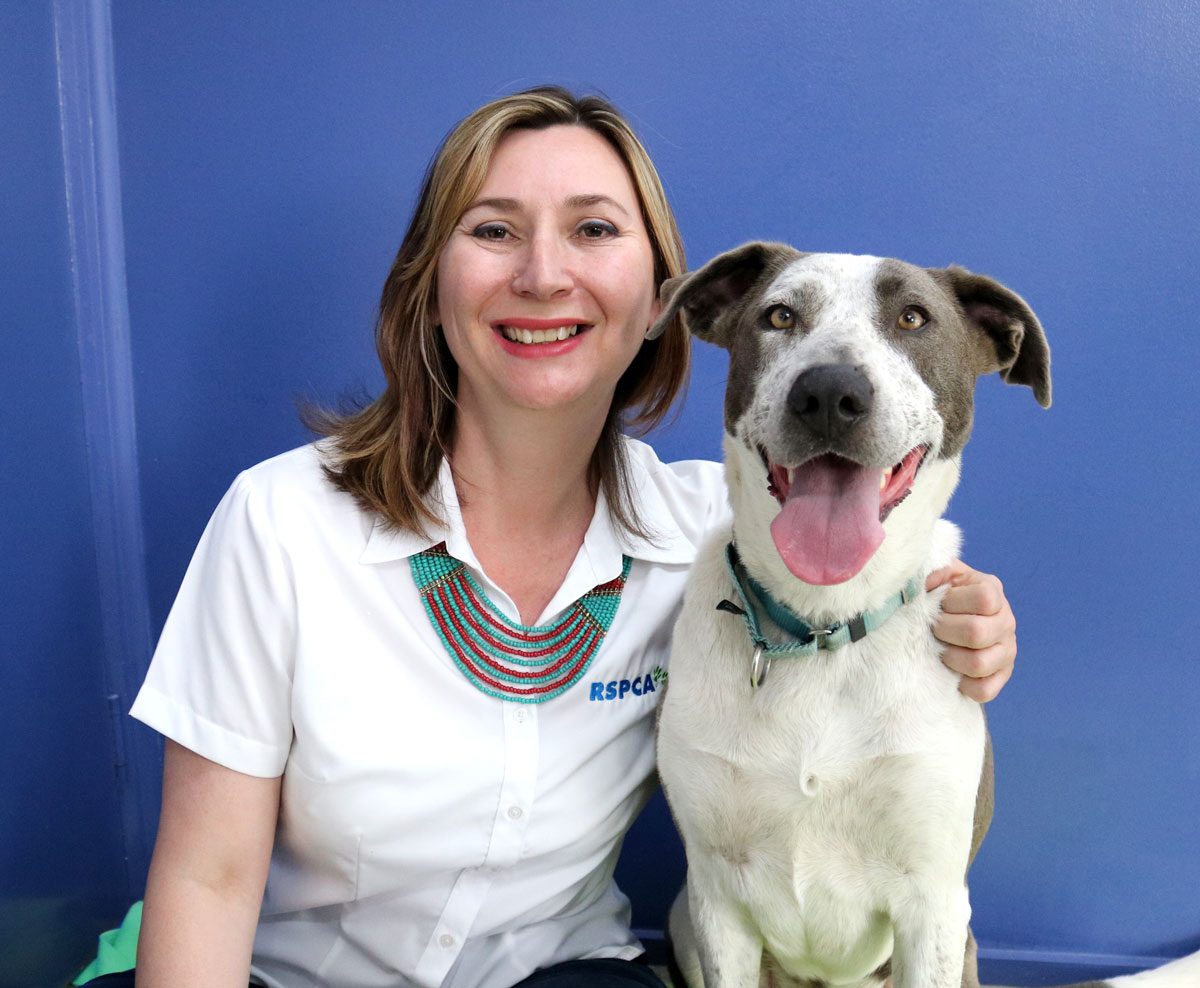
RSPCA ACT CEO Michelle Robertson has urged people to get in contact if they need support for their pets. Image: Supplied.
RSPCA inspectors are looking into the two matters and are calling for information.
To report animal cruelty, contact the RSPCA.
Last month, Ms Robertson told Region the branch was facing a “pretty tough situation”.
The branch had just over 3000 animals in the 2019 financial year, which then dropped the following years before the 2022 financial year saw 2200 animals come into care.
But in the 2023-2024 financial year, this number jumped up to 2931, of which 1139 were cats, and 60 per cent were strays.
RSPCA ACT saw a 30 to 40 per cent increase in numbers in May and June 2024 compared to the same months last year.
Region also recently reported on a story that demonstrated the importance of microchipping.
Earlier this year, a cat named Obama left his home in Sydney, stowed away in a car, and was only discovered after he was driven to Canberra.
He was reunited with his owners when the RSPCA ACT checked his microchip details.












